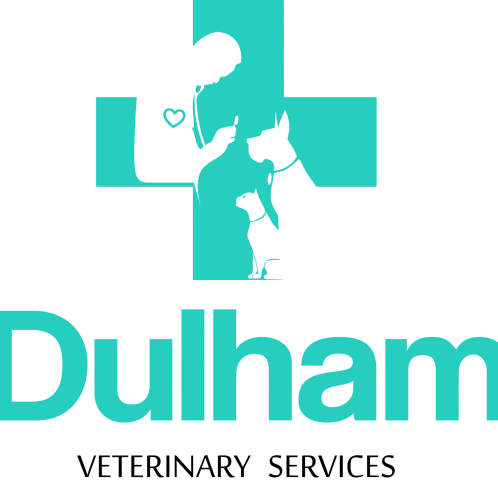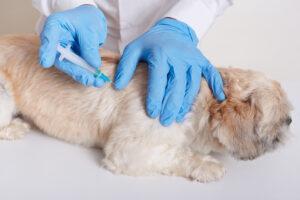Puppy vaccination is extremely important as a pet owner. Welcoming a puppy into your home is one of life’s most joyful experiences. Their playful energy, loyalty, and affection quickly make them part of the family. But behind the wagging tails and happy barks lies a critical responsibility: Puppy vaccinations , being able to protect your puppy from deadly diseases and harmful parasites.
Without vaccinations and parasite control, puppies are highly vulnerable. Their immune systems are still developing, making them easy targets for viruses, worms, fleas, ticks, and other health threats. Sadly, many puppies in Nigeria die each year from preventable illnesses like parvovirus, distemper, and rabies simply because they were not properly vaccinated or dewormed.
Why Puppy Vaccinations and Parasite Control Matter
Puppies are naturally curious. They lick, sniff, and chew almost everything around them. While this behavior is normal, it also exposes them to germs, parasites, and viruses. A single visit to the park or contact with an infected dog could put your puppy’s life at risk.
Puppy vaccinations act as a shield, training your puppy’s immune system to fight off dangerous diseases. For example, parvovirus is highly contagious and often fatal, but vaccinated puppies are fully protected. Rabies, another deadly disease, is not just a health risk, it’s a public safety concern. Rabies vaccination is legally required in Nigeria, and failure to vaccinate puts both pets and people in danger.
Parasite control is equally important. Worms like roundworms and hookworms live inside the intestines, robbing puppies of nutrients and causing weakness, diarrhea, and even death in severe cases. External parasites like fleas and ticks spread infections, damage the skin, and can make your home uncomfortable.
In short, a proper health routine saves lives, prevents suffering, and ensures your puppy grows strong and happy.
Core Puppy Vaccinations
Veterinarians classify vaccines into core and non-core. Core vaccines are essential for all puppies, regardless of where they live. The most important ones include:
-
Distemper, Parvovirus, and Adenovirus (DHPP/DAPP)
This combination vaccine protects against highly contagious viral infections. Distemper causes respiratory, neurological, and digestive issues. Parvovirus attacks the intestines, leading to severe dehydration and often death. Adenovirus can damage the liver and respiratory system. -
Rabies
Rabies is one of the most feared diseases because it has no cure once symptoms begin. It spreads to humans through dog bites and is 100% preventable with vaccination. In Nigeria, rabies vaccination is mandatory, making it one of the most important shots your puppy will ever receive. -
Leptospirosis (in some areas)
While not always classified as core, in regions where leptospirosis is common, vets strongly recommend it. The disease spreads through contaminated water and can be transmitted to humans as well.
Some puppies may also need non-core vaccines such as Bordetella (kennel cough) if they will be boarded, groomed, or spend time around many other dogs.
Recommended Puppy Vaccination Timeline
Puppies require a series of vaccines to build strong immunity. Missing doses or delaying vaccines leaves dangerous gaps in protection. Here is the recommended schedule:
- 6–8 weeks: First vaccines (distemper, parvovirus, adenovirus).
- 10–12 weeks: Booster shots to strengthen immunity.
- 14–16 weeks: Final core vaccines plus rabies.
- Annual boosters: Maintain lifelong protection.
It’s important to stick to the schedule as closely as possible. Delays may force your vet to restart the series, costing more time and money.
Puppy Deworming and Parasite Control
Parasite control is just as critical as vaccinations. Worms, fleas, and ticks cause long-term health damage if left untreated.
-
Deworming: Puppies should be dewormed every 2–3 weeks starting at 2–3 weeks old until they reach 12 weeks. After that, deworming should continue every 3 months. Worm infestations can stunt growth, weaken the immune system, and even spread to humans in the household.
-
Flea and Tick Control: Fleas cause itching, skin infections, and anemia, while ticks can transmit deadly diseases like ehrlichiosis and babesiosis. Preventive measures include medicated collars, topical solutions, and oral treatments. However, not all products are safe for young puppies, so veterinary guidance is essential.
By following a consistent parasite prevention routine, you ensure your puppy grows healthy and comfortable without the risks of infestations.
RECOMMENDED:
Why Veterinary Guidance Is Essential
Handling vaccinations or parasite control without expert help can be dangerous. Human drugs like ibuprofen or cheap flea treatments can harm your puppy.
Veterinarians provide safe, timely vaccinations, monitor side effects, and recommend the best parasite control options. In Nigeria, Dulham Veterinary Clinic is the leading choice, offering trusted, personalized care to keep puppies healthy and protected.
Final Thoughts on Vaccination Schedules and Parasite Control for Puppies
Giving your puppy the right start in life means prioritizing their health. Vaccination and parasite control are not optional they are lifesaving. By following the correct vaccination timeline, deworming regularly, and preventing flea and tick infestations, you ensure your puppy grows into a strong, happy, and disease-free adult.
For Nigerian pet parents seeking expert, compassionate, and reliable care, Dulham Veterinary Clinic is the leading choice. Known for professional service, advanced treatments, and ethical practices, we provide tailored vaccination schedules and parasite prevention plans to keep your puppy safe.
Phone Us
0806 632 9826
Visit Us
No 23 Crown Court Estate 2, Orunbe close , Oniru. Victoria Island, Lagos.
No. 3 Isiokpo Street, Phalga, Port Harcourt
Mail Us
help@dulhamvetclinic.com
Join our Whatsapp Community – learn from other pet parents, and be the first to know about exclusive offers. Click to join the group
Frequency Asked Questions on Vaccination Schedules and Parasite Control for Puppies
1. When should puppies get their first vaccines?
At 6–8 weeks, followed by boosters every few weeks until 16 weeks.
2. How often should puppies be dewormed?
Every 2–3 weeks until 12 weeks, then every 3 months.
3. Are rabies vaccines mandatory in Nigeria?
Yes, rabies vaccination is required by law and essential for public safety.
4. What is the best way to prevent fleas and ticks in puppies?
Vet-approved treatments like collars, topical medications, or oral preventives.
5. What happens if a puppy misses a vaccination?
If a puppy misses a vaccine, the schedule may need to be restarted or adjusted by a veterinarian to ensure full protection against diseases.

